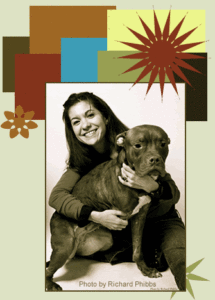
Psychologist, animal welfare advocate and human-animal bond expert Dr. Pia Salk is a regular contributor to Martha Stewart’s The Daily Wag. In a recent article, Salk asked the provocative question, “Can adopting a shelter animal make a difference in your child’s moral development?”
Salk offers important insight into the values we teach our children when we adopt a companion animal from a shelter. According to Salk, the very decision to devote family resources to caring for an animal in need sends a clear message to your children about who you are and what you stand for.
When you adopt a shelter pet, Salk explains, children internalize important values – “We are a family that uses the power of choice to save a life.” This teaches kids that by taking personal responsibility, their choices can affect the larger community.
Children need to feel they can impact their world. Parents need to give children opportunities to do so in positive, pro-social ways. Adopting and caring for an animal can provide this opportunity.
Where should this life lesson begin? Salk suggests a family meeting to discuss if the family is willing and able to meet an animal’s needs. Together, a family should explore every facet of these questions, such as: Do we need landlord permission? How much exercise will the animal need? How will we provide medical care? Who will be responsible for feeding, training and walks? Who will care for the animal during vacations? How will a pet affect plans to move? Such conversations teach the importance of planning, navigating around potential obstacles and committing to a goal, for better or worse. This exercise is an important step in teaching children the inherent value of the animal’s life and well-being.
Answering these questions will also help you determine what sort of animal is a good match for your family. Don’t hesitate to ask your local shelter for help in making this decision.
The choice around which animal to adopt can lead to deeper discussions about family values. Perhaps your family is willing to provide a home to an older pet abandoned because of an eviction, or maybe to a cat who has lost an eye or a limb. These choices help children see past age and physical “limitations” so they appreciate another being’s intrinsic worth. This teaches acceptance and gives children a chance to witness the inspiring resilience of animals.
Perhaps your family is willing to take in a breed disadvantaged by negative stereotypes. This teaches kids to learn for themselves and not be influenced by a biased or misinformed public perception.
For kids who are adopted, adopting a pet provides an opportunity to talk about their feelings while learning more about their family’s love and compassion for others in need. Likewise, for a child who is hearing-impaired or has a condition such as diabetes, adopting an animal with a similar condition, or other special need (provided the resources exist to properly manage it), can be therapeutic and enriching for all involved.
“There is no limit to the great lessons you can teach your children when you opt to adopt,” says Salk. “These lessons benefit everyone involved and they live on in the minds of children, manifesting in a lifetime of compassionate acts.”
What better time to have this compassionate, life-saving family discussion? Visit your local shelter today to see all the pets waiting for the perfect home – yours.
